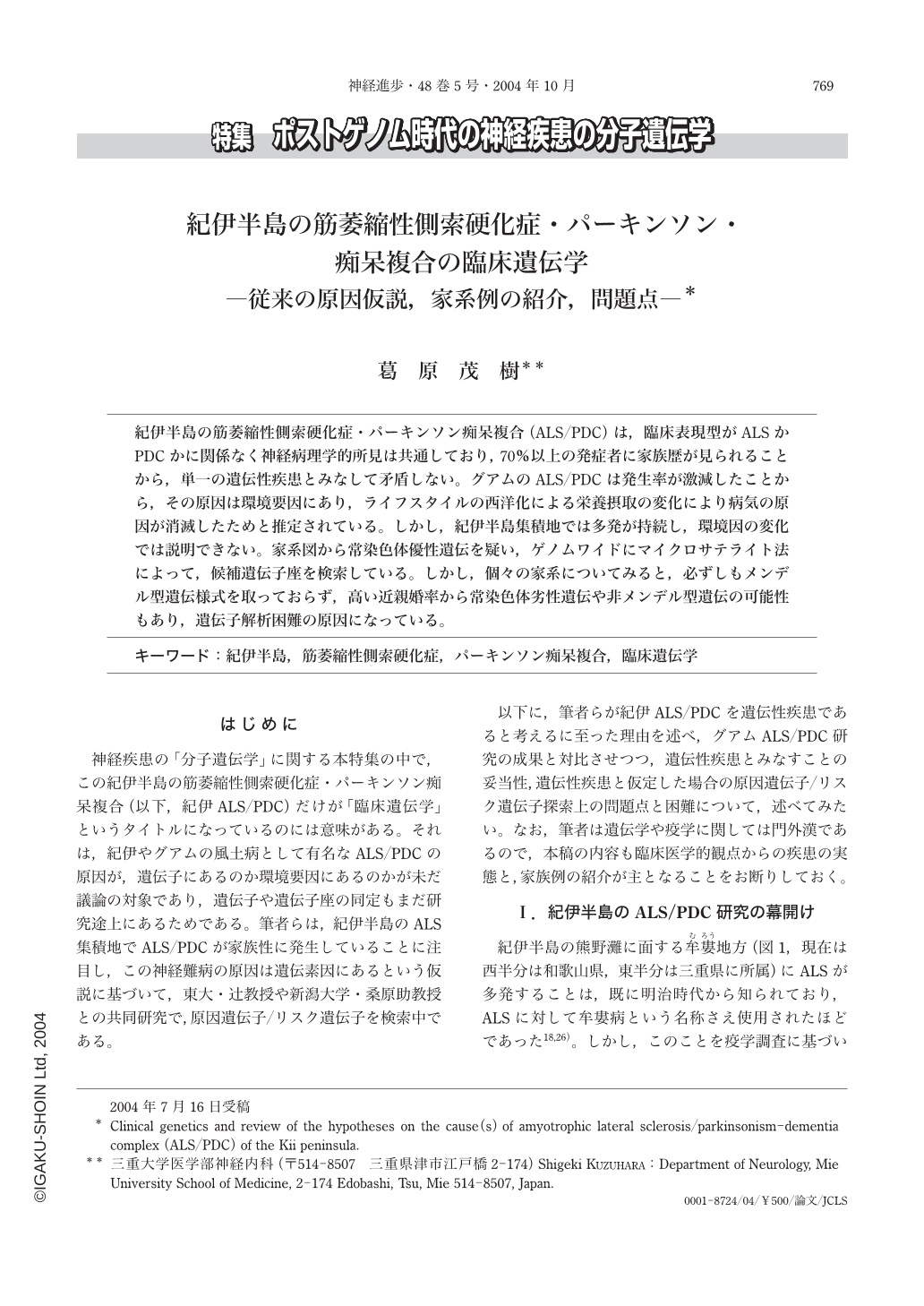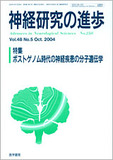Japanese
English
- 有料閲覧
- Abstract 文献概要
- 1ページ目 Look Inside
紀伊半島の筋萎縮性側索硬化症・パーキンソン痴呆複合(ALS/PDC)は,臨床表現型がALSかPDCかに関係なく神経病理学的所見は共通しており,70%以上の発症者に家族歴が見られることから,単一の遺伝性疾患とみなして矛盾しない。グアムのALS/PDCは発生率が激減したことから,その原因は環境要因にあり,ライフスタイルの西洋化による栄養摂取の変化により病気の原因が消滅したためと推定されている。しかし,紀伊半島集積地では多発が持続し,環境因の変化では説明できない。家系図から常染色体優性遺伝を疑い,ゲノムワイドにマイクロサテライト法によって,候補遺伝子座を検索している。しかし,個々の家系についてみると,必ずしもメンデル型遺伝様式を取っておらず,高い近親婚率から常染色体劣性遺伝や非メンデル型遺伝の可能性もあり,遺伝子解析困難の原因になっている。
Despite of the different clinical phenotypes, ALS and PDC of Hohara, the high incidence focus of the Kii peninsula share the common neuropathological features characterized by a combination of abundant neurofibrillar tangles(NFTs)and classic ALS pathology, and more than 70%of the patients have family history of ALS/PDC. ALS and PDC are thus regarded as a single disease of familial nature(Kii ALS/PDC). The pedigrees of most families indicate autosomal-dominant transmission, while pedigrees of some families imply autosomal-recessive transmission or non-Mendelian genetic patterns. The high incidence ALS/PDC on Guam disappeared in early 1980 with the cause unclarified. Some environmental factors, especially some nutritional ones which had been associated with indigenous lifestyle and diet of Guam and disappeared following Westernization of the island were suspected as the cause of Guamanian ALS/PDC although no substantial evidences were confirmed. In contrast, very high incidence rates have continued in the Kii ALS/PDC focus although marked changes of diet, drinking water and life style similar to those which occurred on Guam occurred in the residents in the Kii peninsula as well. We have suspected genetic factors as the cause, and gene analysis on ALS/PDC families by the genome-wide microsatellite method for the candidate gene locus has been going on. Very high rates of consanguineous marriage in the past and atypical patterns of transmission of the disease in some families which are inconsistent with Mendelian patterns are the factors which make the gene analysis study difficult.

Copyright © 2004, Igaku-Shoin Ltd. All rights reserved.


